
Morocco has made the choice, since its independence, for political pluralism and economic liberalism, by devoting the right of ownership and freedom of enterprise among the fundamental rights guaranteed by the Constitution.
The Moroccan economy is an economy characterized by a great openness toward the outside world. Since the early 1980s, Morocco has adopted a policy of economic and financial openness aimed at strengthening the liberalization of foreign trade, greater integration of the Moroccan economy into the world’s economy, and contribution to the consolidation of the multilateral trading system.
Also, Morocco has simplified the procedures for foreign trade, reduced protection tariffs, eliminated non-tariff measures, improved the business and investment climate, expanded and diversified economic and trade relations, and finally, consolidated its contribution to the multilateral trading system.
This openness is illustrated by the signing of various free trade agreements with the main economic partners, particularly the European Union, the United States, the Arab and African countries. In addition, a set of legal texts have been promulgated or amended to accompany these reforms. For example, the investment charter, the commercial code, the law establishing commercial courts, the customs code, the law on freedom of prices and competition, the regulations on State contracts, the law on the protection of industrial and commercial property, and so on so forth.
Moreover, the Kingdom has implemented a series of sectors focused aimed at developing industrial performance, raising output in key revenue-earning sectors, improving Morocco’s competitiveness both regionally and globally as well as attracting foreign investment. investing in Morocco has become a global destination in the last decades.
Attraction of foreign investment and improvement of competitiveness
As part of foreign investment promotion efforts, Morocco set up a strong legal framework conducive to developing trade through the conclusion of several free trade agreements either bilaterally or regionally mainly with the United Arab Emirates, Egypt, Jordan, Tunisia, Turkey, The United States, and member States of the European Free Trade Association (Iceland, Liechtenstein, Norway and Switzerland). Morocco’s future adhesion to the Economic Community of West African States (ECOWAS) will allow it to enlarge its market access by 300 million consumers.
As a result, foreign direct investments in Morocco have been increasing steadily positioning Morocco today as the third most attractive country for FDI in Africa, attracting more than 9% of all flows to the continent.
In terms of exports, Morocco realized a significant improvement over the last 5 years, with an average annual growth of almost 7% and a more diversified basket of products, towards more markets (than traditionally the EU) and with a higher technology level.
Morocco’s geography (Atlantic and Mediterranean), political stability, and solid infrastructure have transformed the country into a regional hub for international companies. By leveraging its unique economic belonging to Africa, Europe, and the Middle East, Morocco continues to encourage and facilitate foreign investments through economic incentives and favorable macroeconomic policies. ( More details read: Top 7 reasons for investing in Morocco)
As a result, sectors that are new to the Moroccan economy are today leading. For example, the Automotive industry’s contribution to exports, spiked 44.5% in 2017 to be, for the first time Morocco’s leading export sector. Contributing to the creation of 29% of industrial jobs, the Automotive industry recorded the strongest job creation between 2014 and 2017 with 83,845 new jobs, more than 93% of the target set for 2020, reporting a local integration progressing with a rate exceeding, to date, the 50% and will be increased to 85% in 2023, with the activity of PSA (car manufacturer). The deployed vision gives visibility to operators and offers a high-performance industrial base that meets investors’ expectations, as well as the ecosystem approach implements a production method that ensures optimal delivery times and costs.
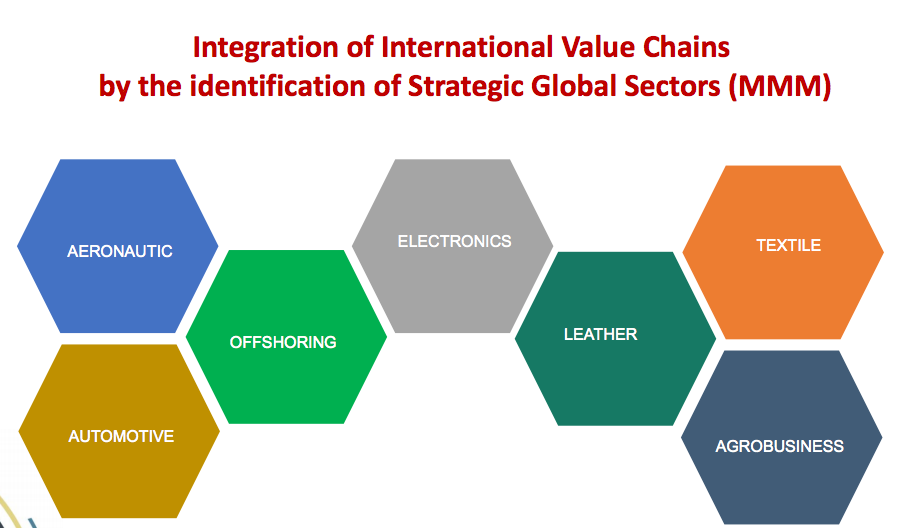
The automotive industry is only one of the many fields where Morocco is ambitious to become a major player and a leading production country. After many decades during which the Moroccan economy was heavily dependent on Agriculture and low-added value sectors, came a growing awareness that the emergence of a successful manufacturing industry would greatly contribute to being a driver of growth, creating jobs and assisting the country in coping with external deficits.

Key factors of Moroccan economy SUCCESS:
Five major factors have contributed to accomplishing the actual GREAT economic performance of Morocco:
- First of all, stability. All of this wouldn’t have been possible without the country’s stability, and the leadership of His Majesty King Mohammed VI, thanks to whom Morocco achieved significant democratic progress with several political and constitutional reforms based on strengthening the rule of law, expanding political pluralism as well as the base of human rights and promoting the moralization of public life and good governance along with broadening the prerogatives of civil society. Morocco is ranked 57th in the peace index and that is our number one asset; Macroeconomic reforms have contributed to important macroeconomic stability and the reduction of the budget and current account deficits with an enhancement of transparency and good governance. This also allowed the Kingdom to retain a good investment grade in the Standards & Poor’s and Fitch ratings.
- The second factor is a long-term vision and a firm will diversify Morocco’s industry and boost the country’s position in global value chains. That’s why the Kingdom set an ambitious industrial strategy called the Emergence Plan, which set a ROADMAP FOR 2020, for high-growth potential sectors like Offshoring, Aerospace, Automotive, Electrical Equipment, Logistics Agro and Pharmaceutics. it also tends to revitalize traditional sectors such as Agriculture, Textile, food –Industry, Tourism, and Trade. For some of these industries, which didn’t exist in Morocco, the country had different assets: strategic geographical position and world-class infrastructure, besides a skilled and cost-competitive workforce. It also offered strong incentive packages and financial support to attract world-class international players.
- The third factor is the participative and integrated approach adopted to set these strategies. All those long-term strategies have been translated into contractual agreements between the public and the private sectors. Generally, Morocco adopted an integrated approach in each field, with the creation of dedicated ecosystems with sectorial clusters incorporating trained resources, incentive packages, and integrated industrial platforms of the new generation, offering a complete range of services.
- The fourth factor is enhancing infrastructure. In terms of infrastructure, thanks to the creation of multimodal logistics platforms and world-class infrastructure like Tanger Med, a freeway network that reached thousand eight hundred kilometers 1’800 km in 2015 and, now, the first high-speed railway in the region. Thus, Morocco jumped, from the 84th to the 16th rank worldwide in terms of maritime connectivity according to the UNCTAD (CNUCED).
- The fifth factor is improving the business climate. For this goal, Morocco has a dedicated national committee, chaired by the chief of government that periodically gathers key public and private stakeholders around a common reform.

Morocco success stories:
One of Morocco’s success stories is with Renault, which produces about 300,000 cars every year in the Tangier plant and planning to reach 400,000 units. And there are perspectives of other major constructors soon.
The creation of this plant developed a virtuous circle in the Tangier zone and helped us build expertise in equipment manufacturing and attract international firms (some of them American and Japanese firms) manufacturing wire harnesses and other auto parts in Morocco for the European market and Africa.

Another success story would be aeronautics, which is clearly a sector that involves very sophisticated technology, dedicated infrastructures, and skilled workers. In 2005, only a few believed in the potential of Morocco as an aeronautics destination. However, the Kingdom has reached encouraging results by creating centers of excellence for production, services, maintenance, and engineering. And because training is a crucial point, the country created an Aerospace Institute, a vocational school, which supplements the industry.
The sector now has more than 60 companies (nearly 70% of which have less than 5 years of existence) some of them are world companies like Boeing, airbus, Safran, or Bombardier.
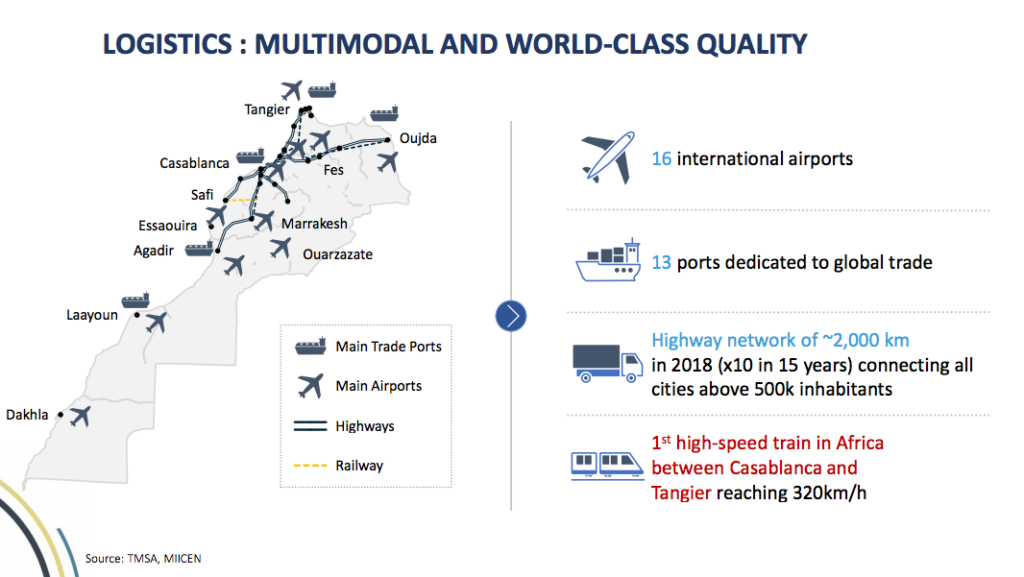
Another success story sector in Morocco, with tremendous achievements, is ENERGY. The country launched an ambitious renewable energy program that aims to have, by 2020, 6,000 MW (about 42% of our total energy mix and of which 3000 MW are already operating) powered by solar, wind, and hydroelectric sources. Morocco attracted international consortia to projects ranging from solar and wind to improved hydro and built two stations, considered as one of biggest solar thermal power plants worldwide. Needless to say, the solar potential is huge in Morocco, especially in Southern Provinces.
It is so important to mention that, beyond helping to reduce the impact on the energy bill and on the environment, creating jobs, and boosting social development, the Solar Plan helped develop local industries that deliver components and maintain these plants which offers great opportunities for domestic and export markets.
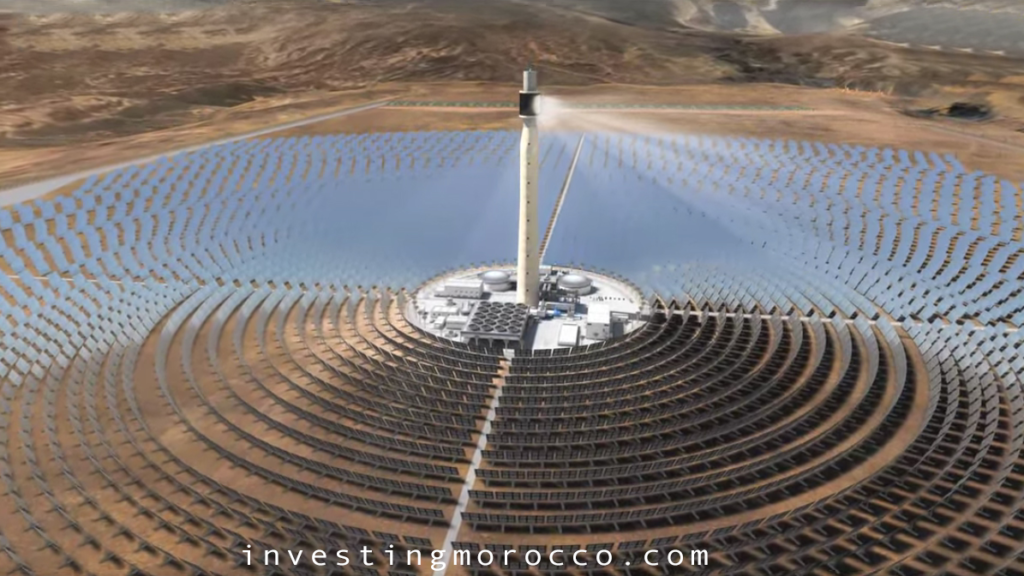
It was also important to develop more integration between the primary sector and industry. Agriculture, plays an important role in the Moroccan Economy, since it contributes 19% to the national GDP, and supports the income of 80% of four million rural people, Moroccan Green Plan aims to develop a modern and competitive agriculture, creating high-added value in both production and agro-business and the construction of six Agropolis, dedicated to integrated zones. This Plan also sought to depend less on rain and promote food security.
Morocco also succeeded in implementing the Halieutis Plan, aimed at upgrading and modernizing the fisheries sector and increasing both productivity and competitiveness while preserving the resources.
Overall, more than 110,000 jobs have been created in these new sectors and industrial exports have risen by 22%.
Read more about investing in Morocco:
“Morocco, Connecting Global Value Chains”, By AMDIE . Report of 35 pages.



Sources:
- https://www.moroccoembassy.co.za/morocco/economy-investments
- https://www.maroc.ma
- https://www.diplomatie.ma
- https://www.youtube.com/channel/UC-EttFE798nM8sr8AKapi3Q
- https://www.investingmorocco.com
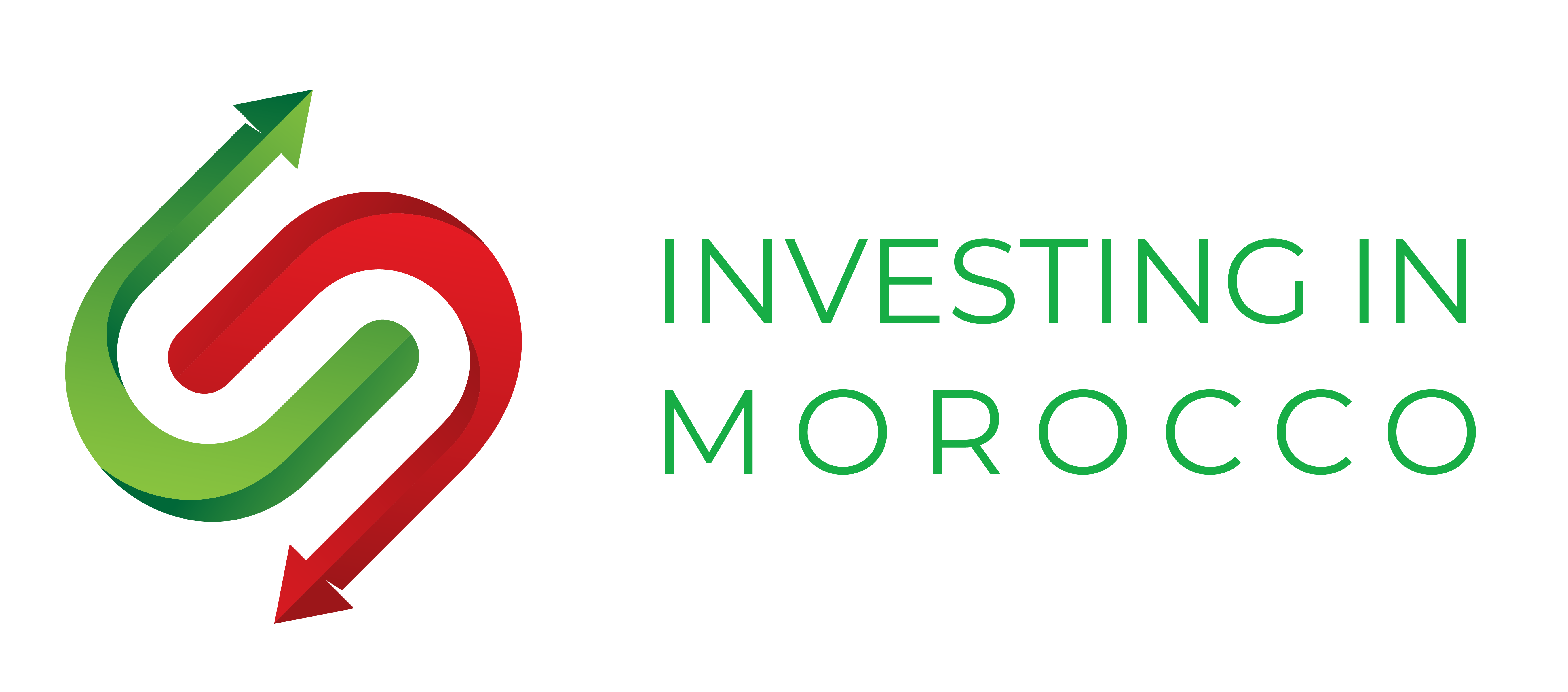
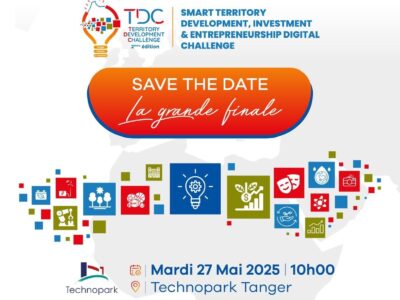
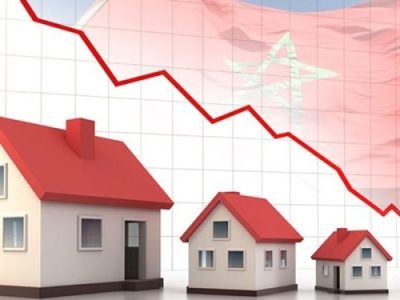
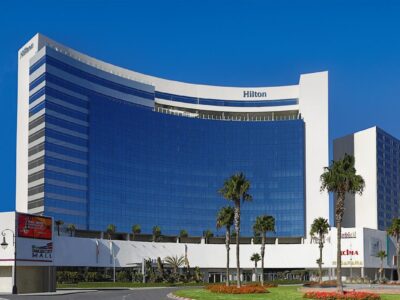
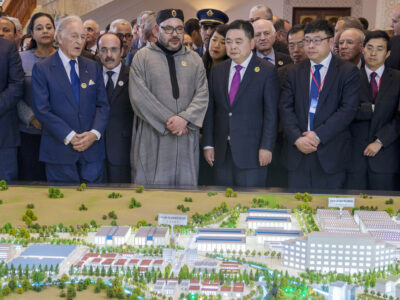
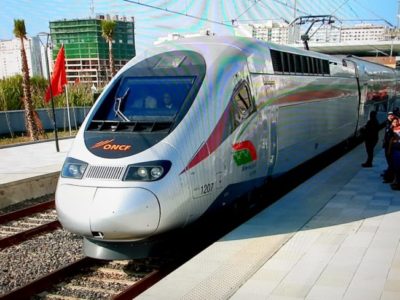
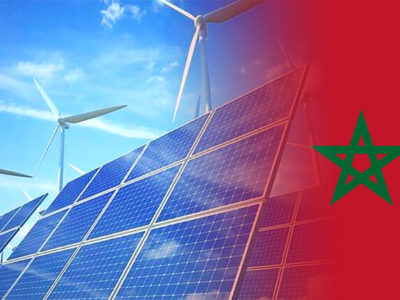
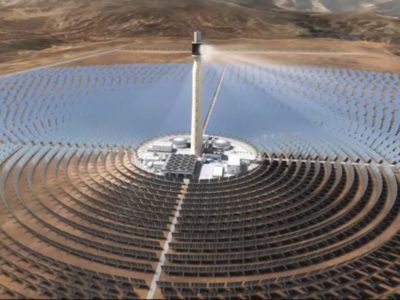

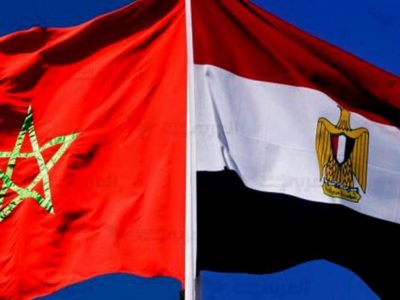
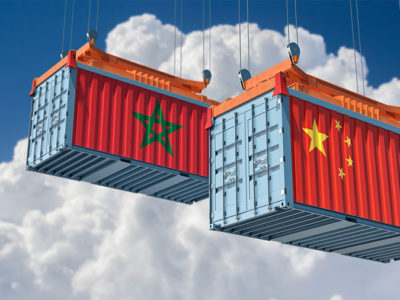
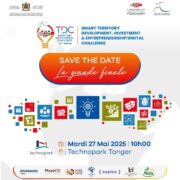
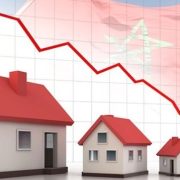
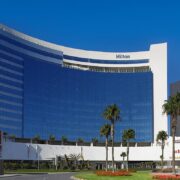
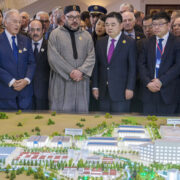
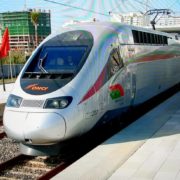


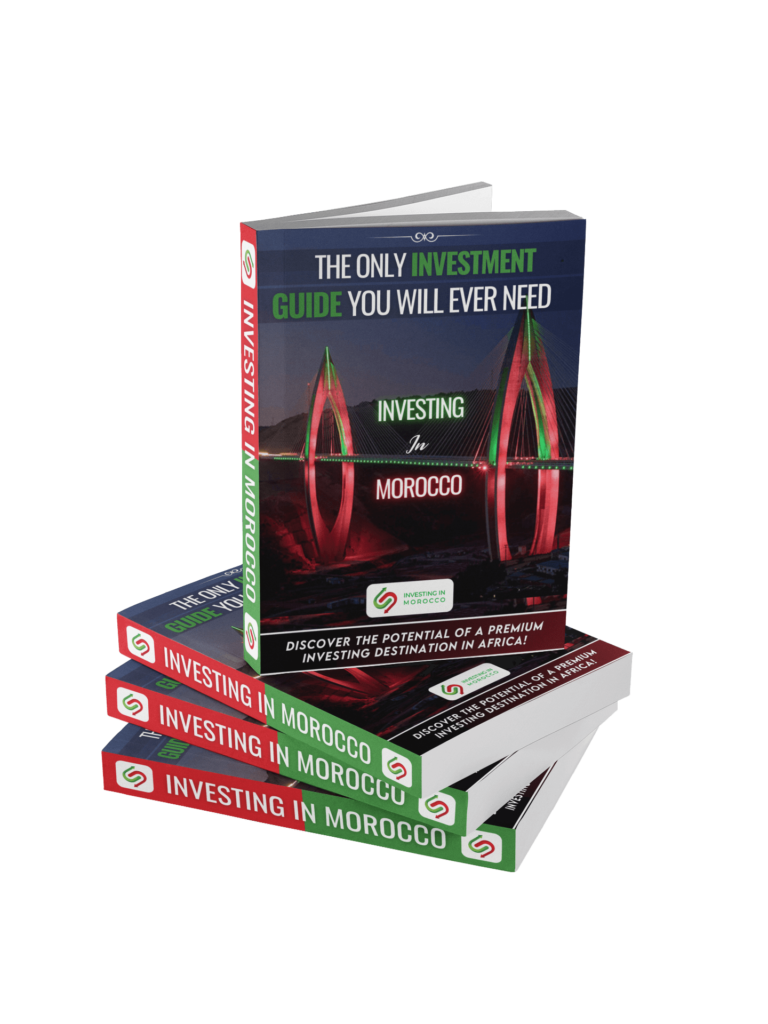
Comments